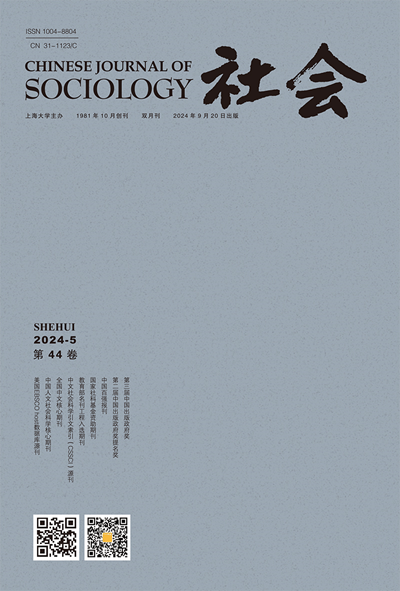全球化时代的电信联系和性别意识形态:47个国家的国际电话网络和性别态度
IF 1.8
4区 社会学
Q2 SOCIOLOGY
引用次数: 2
摘要
关于全球电信对价值取向的影响,学者们提出了不同的假设。我们分析和描述了全球电信网络,并测试了一系列关于性别价值观与三种类型的电话连接之间关系的假设:与全球社会的联系,与西方国家的联系,以及具有相似文化,宗教,政治或地理特征的国家集团内的联系。我们在两个层面上使用多层模型和数据,即来自TeleGeography的国家间电信网络数据,以及来自世界价值调查第三和第四波的47个国家居民的个人层面数据(N = 70,225)。通信隔离程度高的国家(以所有全球电话链路中集团内联系的高百分比衡量)对性别平等的态度不那么平等。这种群体隔离的负面影响抑制了年轻出生队列、大学教育和高收入的平均主义效应。嵌入于本地化的信息传播网络和孤立于全球交流与对性别平等的不平等态度有关。但无论是全球关系还是与西方国家的关系,都与性别态度无关。本文章由计算机程序翻译,如有差异,请以英文原文为准。
Telecommunication ties and gender ideologies in the age of globalization: International telephone networks and gender attitudes in 47 countries
Scholars have posed different hypotheses on the impact of global telecommunications on value orientations. We analyze and characterize the global telecommunication network and test a series of hypotheses on the relationship between gender values and three types of telephone connections: ties with the global society, ties with Western nations, and ties within groups of nations sharing similar cultural, religious, political, or geographical traits. We use multilevel models and data on two levels, between-country telecommunications network data from TeleGeography, and individual-level data (N = 70,225) on people living in 47 countries from the World Value Survey, waves III and IV. Countries with high degrees of communication insulation, measured as a high percentage of within-group ties of all global telephone links, hold less egalitarian attitudes toward gender equality. This negative effect of group insulation depresses the egalitarian effects of younger birth cohort, college education, and higher income. Embeddedness in a localized information diffusion network and isolated from global communication is associated with less egalitarian attitude toward gender equality. But neither global ties nor ties with Western countries are linked with gender attitudes.
求助全文
通过发布文献求助,成功后即可免费获取论文全文。
去求助
来源期刊

社会
Social Sciences-Social Sciences (all)
CiteScore
1.70
自引率
0.00%
发文量
6799
期刊介绍:
The Chinese Journal of Sociology is a peer reviewed, international journal with the following standards: 1. The purpose of the Journal is to publish (in the English language) articles, reviews and scholarly comment which have been judged worthy of publication by appropriate specialists and accepted by the University on studies relating to sociology. 2. The Journal will be international in the sense that it will seek, wherever possible, to publish material from authors with an international reputation and articles that are of interest to an international audience. 3. In pursuit of the above the journal shall: (i) draw on and include high quality work from the international community . The Journal shall include work representing the major areas of interest in sociology. (ii) avoid bias in favour of the interests of particular schools or directions of research or particular political or narrow disciplinary objectives to the exclusion of others; (iii) ensure that articles are written in a terminology and style which makes them intelligible, not merely within the context of a particular discipline or abstract mode, but across the domain of relevant disciplines.
 求助内容:
求助内容: 应助结果提醒方式:
应助结果提醒方式:


